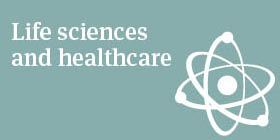
The convergence of technology and life sciences was a defining feature of 2018. The boundaries of what defines the life sciences sector have increasingly blurred as life sciences companies look to the value of data in the search for innovation.
This does not mean, however, that “traditional” life sciences transactions are not going ahead. Some of the largest global deals have involved the acquisition of “traditional” research and development assets.
- 2018 was a good year for life science M&A transactions. While we may not see the deal values of 2018, we expect M&A activity to continue strongly into 2019.
- Technology companies are challenging “traditional” life sciences companies in data capture, data analysis and data management and driving innovation through technology.
- The market should see more acquisitions of digital health and technology companies by pharmaceutical companies in 2019.
- Spin-offs and corporate restructurings to capture additional value will continue into 2019.
- Pharma companies will continue to use a venture capital model in order to identify the next game-changer (and potential acquisition target) to gain a competitive advantage in identifying new and emerging technologies
- Continued strong venture capital and private equity funding into the sector in 2019 is expected, with many of the firms indicating a strong interest in tech-related life sciences and healthcare deals.
Case study
Norton Rose Fulbright advised on the sale of Acumyn Inc., a healthcare technology company, to a global Swedish health technology company, Elekta. This included negotiating Acumyn’s joint development and marketing agreement with Elekta, as well as acting on a number of complex mandates related to Acumyn’s technology and licensing with University Health Network, a leading Toronto based hospital network.
Return to M&A outlook 2019











